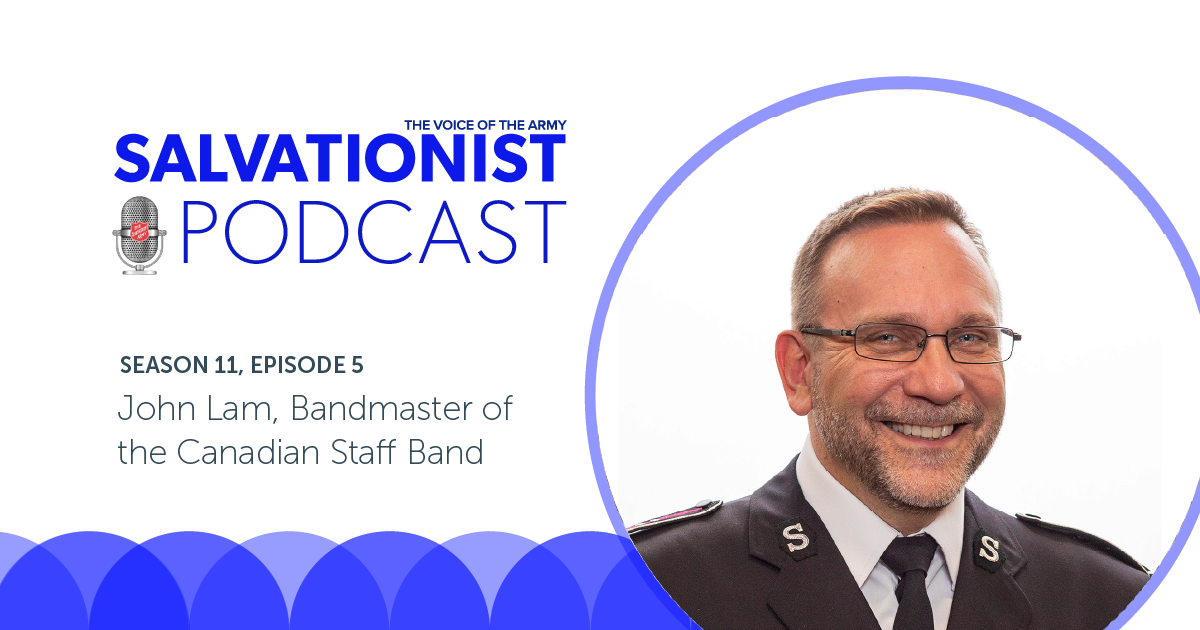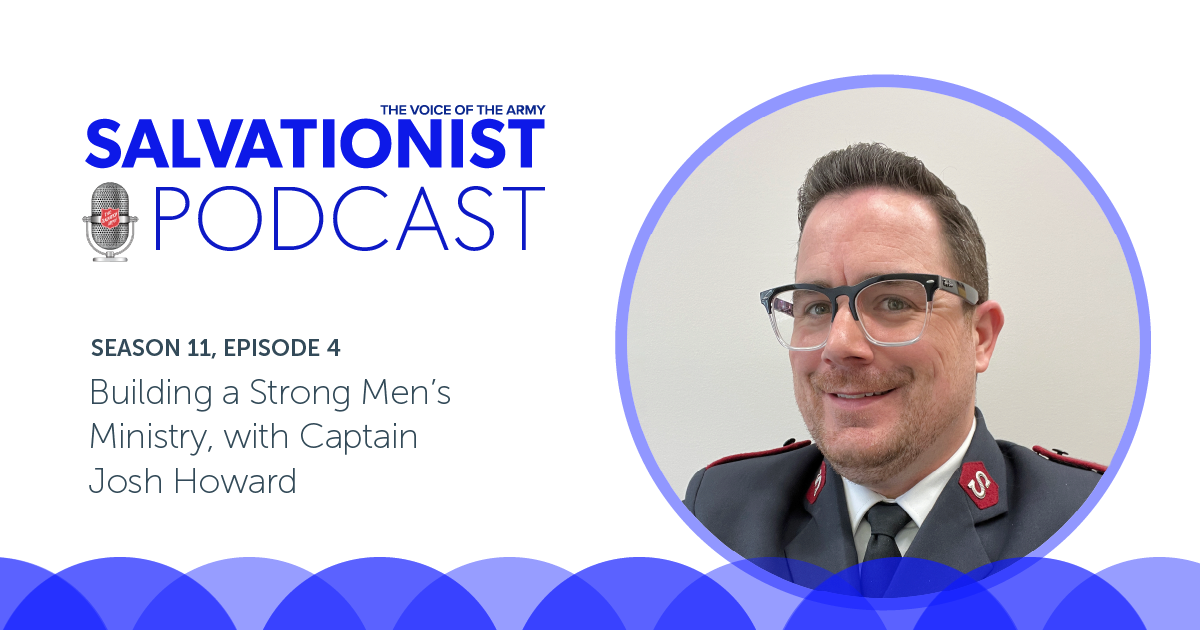In John 5:6, Jesus asked a paralyzed man at the pool of Bethesda, “Do you want to get well?” It is interesting to me that Jesus didn’t ask the man if he had enough faith to be healed. He only asked if he wanted to be healed.
It seems an unnecessary question. Scripture records that the man had been paralyzed for 38 years. Wasn’t it obvious to everyone that the man wanted to be healed? Of course it was!
And yet, it’s fair to say that people do not always act as if they want to get well. Some are comfortable languishing in brokenness or self-pity and others prefer the status quo to the disruption that comes with change. Let’s be honest. Getting well—physically, relationally, emotionally, spiritually—comes at a price.
What is true in our personal experience applies to congregational life, too. For example, think about the current context of your worshipping community. If it is anything less than you think it ought to be, do you truly want it to be better? Are you willing to make the changes needed for it to get well? Are you willing to disrupt the present to achieve a brighter future? These are fair questions to ask of Salvationists.
It is no secret that The Salvation Army must address several fundamental challenges facing the movement. That’s why our territory has launched “Mobilize 2.0—Inspired for Mission, Positioned for Growth.” We recognize that the Army is still thriving in many places throughout Canada and Bermuda. Indeed, one could argue that the Army’s societal impact is greater now than ever before. And yet, there are reasons for grave concern.
A decades-long downward trajectory in the number of corps, soldiers, people accepting Christ and weekly worship attendance is troublesome to those who highly value the spiritual ministry of the Army. While there is still time to reverse the tide of decline in much of our spiritual work, it seems to me that Salvationists must first positively answer the questions already referenced above: Do we want to be well? Are we willing to effect change? Will we be open to a new and different journey in our own context that, though personally uncomfortable, may lead to a growing, more missional and vibrant Salvation Army? Saying “yes” to these questions and taking action does not come as easily as one might expect.
Incompatible Wishes
In the book Necessary Endings, Dr. Henry Cloud lists a series of internal obstacles that will be encountered and must be overcome by those seeking positive and necessary change. One such obstacle is the tendency many of us have to hold incompatible wishes.
Incompatible wishes are most easily defined as the seeking of divergent goals that cannot all be achieved. For example, one can’t expect to lose weight while at the same time snacking on cookies and ice cream! The wish to lose weight and to continue consuming goodies are incompatible.
Incompatible wishes are a common challenge to decision-making in The Salvation Army. Consider the congregation that intellectually agrees moving to a new location will be more conducive to mission and ministry, but chooses not to do so because of personal convenience or a sense of nostalgia associated with the present location. Sometimes we can’t have it all! To win, grow and change requires the sacrifice of some things for others.
An Open Mind
Another obstacle to becoming well is leaders having an attachment to a certain outcome. Too often, leaders at all levels hold tightly to pre-determined personal preferences, rather than having a commitment to embrace the course of action that will be most beneficial for the mission.
In other words, we must enter difficult discussions with an open, rather than a closed, mind. Such an approach requires the full knowledge and acceptance that not everyone will be happy with the final decision. It takes courage for a group of leaders to understand that some may leave and there will be pain in the process, but still commit to making the right decision—and allowing “the chips to fall where they may.”
Medicating Thoughts
A third obstacle to change is leaders who defer decisions by defaulting to medicating thoughts. Medicating thoughts are employed to relieve leaders from the sense of urgency to take a potentially agonizing action. Medicating thoughts allow us to “kick the can down the road.” We declare to others and ourselves, “I’ll address my addiction … later.” “I’ll end this unhealthy relationship … later.” “I’ll lose weight … later.” Unfortunately, “later” never arrives. We continue forward in the same path as before.
Besides putting hard things off, leaders are also often guilty of selective memory. This happens a lot in dysfunctional relationships. We remember the good, but forget the bad.
In an Army context, leaders sorting out big decisions can be guilty of cherry-picking the positive highlights in our collective memories, but overlooking the gaps in ministry and relevance that may have contributed to a weakened Salvationist influence. The solution to selective memory is a whole vision that acknowledges the positive, but clearly sees deficits that must be addressed.
Jesus met a man who had been suffering for 38 years at a pool called Bethesda. Did the man have a clear idea of what he wanted? Did he want to move on? Did he truly want to be made well? The Lord must have thought so. Jesus transformed the trajectory of the man’s life.
God wants to do a new work in the spiritual life of worshipping congregations throughout our vast territory. Will we consent to his transforming work? Will we choose, with God’s help, to get well? If so, let’s put aside the obstacles that may cause us to think small and instead strive to seek a whole vision. Only then will we truly be “Inspired for Mission, Positioned for Growth.” That’s what Mobilize 2.0 is all about.
Colonel Edward Hill is the chief secretary in the Canada and Bermuda Territory.
llustration: Eoneren/E+ via Getty Images
It seems an unnecessary question. Scripture records that the man had been paralyzed for 38 years. Wasn’t it obvious to everyone that the man wanted to be healed? Of course it was!
And yet, it’s fair to say that people do not always act as if they want to get well. Some are comfortable languishing in brokenness or self-pity and others prefer the status quo to the disruption that comes with change. Let’s be honest. Getting well—physically, relationally, emotionally, spiritually—comes at a price.
What is true in our personal experience applies to congregational life, too. For example, think about the current context of your worshipping community. If it is anything less than you think it ought to be, do you truly want it to be better? Are you willing to make the changes needed for it to get well? Are you willing to disrupt the present to achieve a brighter future? These are fair questions to ask of Salvationists.
It is no secret that The Salvation Army must address several fundamental challenges facing the movement. That’s why our territory has launched “Mobilize 2.0—Inspired for Mission, Positioned for Growth.” We recognize that the Army is still thriving in many places throughout Canada and Bermuda. Indeed, one could argue that the Army’s societal impact is greater now than ever before. And yet, there are reasons for grave concern.
A decades-long downward trajectory in the number of corps, soldiers, people accepting Christ and weekly worship attendance is troublesome to those who highly value the spiritual ministry of the Army. While there is still time to reverse the tide of decline in much of our spiritual work, it seems to me that Salvationists must first positively answer the questions already referenced above: Do we want to be well? Are we willing to effect change? Will we be open to a new and different journey in our own context that, though personally uncomfortable, may lead to a growing, more missional and vibrant Salvation Army? Saying “yes” to these questions and taking action does not come as easily as one might expect.
Incompatible Wishes
In the book Necessary Endings, Dr. Henry Cloud lists a series of internal obstacles that will be encountered and must be overcome by those seeking positive and necessary change. One such obstacle is the tendency many of us have to hold incompatible wishes.
Incompatible wishes are most easily defined as the seeking of divergent goals that cannot all be achieved. For example, one can’t expect to lose weight while at the same time snacking on cookies and ice cream! The wish to lose weight and to continue consuming goodies are incompatible.
Incompatible wishes are a common challenge to decision-making in The Salvation Army. Consider the congregation that intellectually agrees moving to a new location will be more conducive to mission and ministry, but chooses not to do so because of personal convenience or a sense of nostalgia associated with the present location. Sometimes we can’t have it all! To win, grow and change requires the sacrifice of some things for others.
An Open Mind
Another obstacle to becoming well is leaders having an attachment to a certain outcome. Too often, leaders at all levels hold tightly to pre-determined personal preferences, rather than having a commitment to embrace the course of action that will be most beneficial for the mission.
In other words, we must enter difficult discussions with an open, rather than a closed, mind. Such an approach requires the full knowledge and acceptance that not everyone will be happy with the final decision. It takes courage for a group of leaders to understand that some may leave and there will be pain in the process, but still commit to making the right decision—and allowing “the chips to fall where they may.”
Medicating Thoughts
A third obstacle to change is leaders who defer decisions by defaulting to medicating thoughts. Medicating thoughts are employed to relieve leaders from the sense of urgency to take a potentially agonizing action. Medicating thoughts allow us to “kick the can down the road.” We declare to others and ourselves, “I’ll address my addiction … later.” “I’ll end this unhealthy relationship … later.” “I’ll lose weight … later.” Unfortunately, “later” never arrives. We continue forward in the same path as before.
Besides putting hard things off, leaders are also often guilty of selective memory. This happens a lot in dysfunctional relationships. We remember the good, but forget the bad.
In an Army context, leaders sorting out big decisions can be guilty of cherry-picking the positive highlights in our collective memories, but overlooking the gaps in ministry and relevance that may have contributed to a weakened Salvationist influence. The solution to selective memory is a whole vision that acknowledges the positive, but clearly sees deficits that must be addressed.
Jesus met a man who had been suffering for 38 years at a pool called Bethesda. Did the man have a clear idea of what he wanted? Did he want to move on? Did he truly want to be made well? The Lord must have thought so. Jesus transformed the trajectory of the man’s life.
God wants to do a new work in the spiritual life of worshipping congregations throughout our vast territory. Will we consent to his transforming work? Will we choose, with God’s help, to get well? If so, let’s put aside the obstacles that may cause us to think small and instead strive to seek a whole vision. Only then will we truly be “Inspired for Mission, Positioned for Growth.” That’s what Mobilize 2.0 is all about.
Colonel Edward Hill is the chief secretary in the Canada and Bermuda Territory.
llustration: Eoneren/E+ via Getty Images










Comment
On Tuesday, November 3, 2020, Stephen Court said:
Leave a Comment